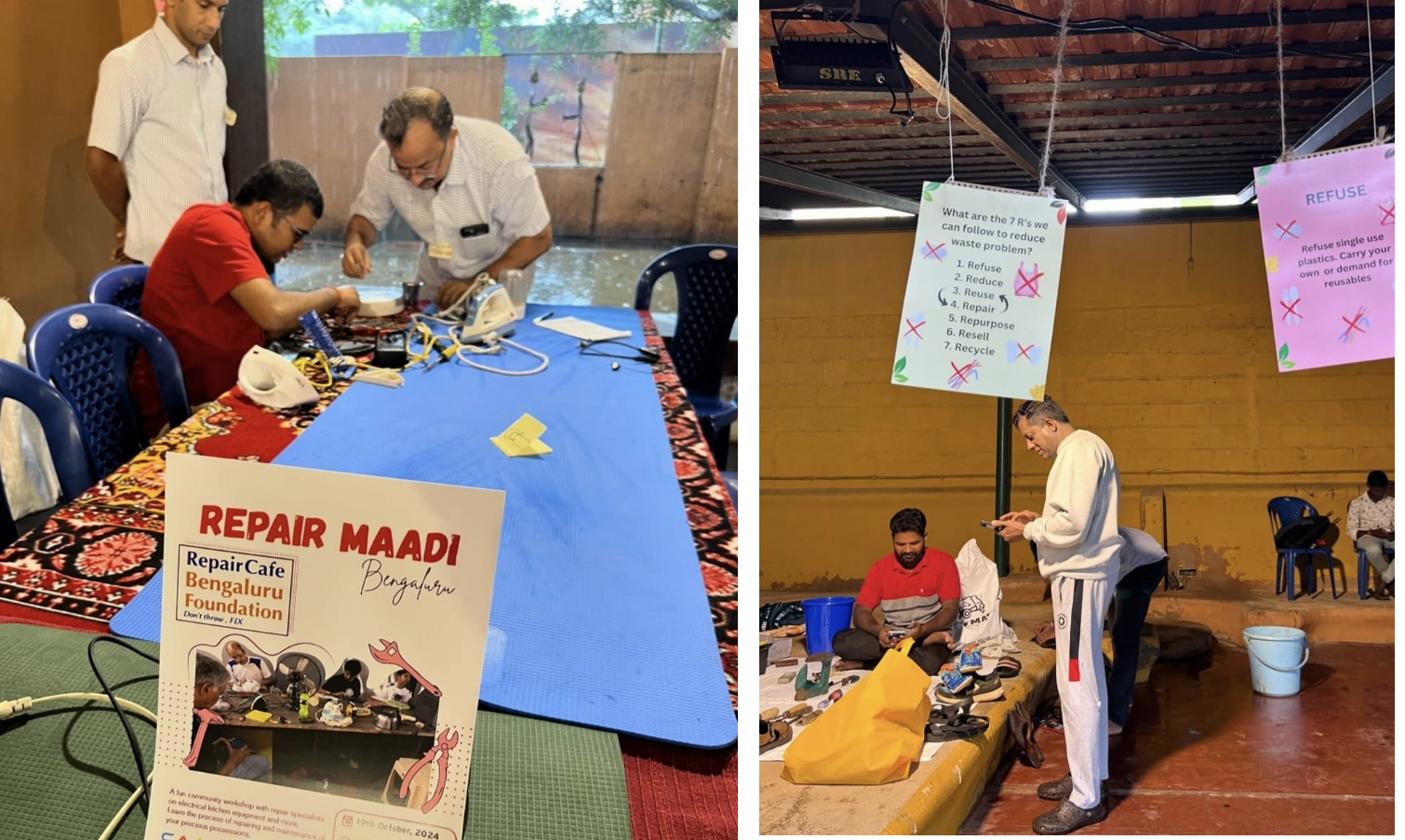
Repair revolution: B'luru sparks movement for sustainability
NT| Correspondent: In a vibrant celebration of sustainability, over 600 citizens and volunteers gathered at Doddakallasandra on Kanakapura Road, Bengaluru, to champion the cause of repair and reuse over waste and discard. Organized under the banner of "Repair Maadi Bengaluru," the event aimed to promote the message "Why throw, when you can repair it?" as part of World Repair Day. Backed by the city-based organization Saahas, along with key supporters like Google Grants and partners such as Pearl Academy, Shankaraa, LVBL, Alt Lab Innovators, and the Repair Café Foundation, the daylong event shone a spotlight on repair culture.
Participants, ranging from skilled tradespeople to curious newcomers, took part in hands-on workshops designed to teach the art of repair. From fixing clothes to small electronics and even bicycles, attendees learned practical skills that encouraged them to rethink their approach to everyday items. Smita Kulkarni, a prominent member of the Saahas team, was one of the key voices at the event. Speaking about the modern shift in mindset, she pointed out how repair, once a common practice, has now been overshadowed by a growing consumerist trend that favors disposal over restoration. “In the past, people repaired items out of necessity. Now, with the rising cost of repairs, people find it easier to simply throw things away,” Kulkarni remarked.
This is an attitude that "Repair Maadi Bengaluru" is determined to change. One of the shocking revelations made at the event was the fact that only 20% of clothes in circulation are actively used, with the remaining 80% eventually ending up in landfills. "We buy more, use less, and throw away too much," Kulkarni said, stressing the need for more affordable repair options and the preservation of repair skills, particularly in a city like Bengaluru, where consumerism is accelerating. She noted that as much as 50% of discarded products in Bengaluru are thrown away prematurely, despite being repairable. The workshops held during the event offered participants hands-on experience in essential skills such as fashion mending, carpentry, electronics repair, and bicycle servicing. Panel discussions also explored broader themes, including the "Right to Repair" movement for electronics and how repair, restoration, and reuse can play a critical role in industries like fashion.
The message resonated deeply with attendees, many of whom appreciated the opportunity to learn skills they could apply in their daily lives. “It’s not just about fixing things for yourself,” one participant shared, “but also about helping others, creating less waste, and supporting tradespeople who rely on these skills for their livelihoods.”
 English daily published in Bengaluru & Doha
English daily published in Bengaluru & Doha






